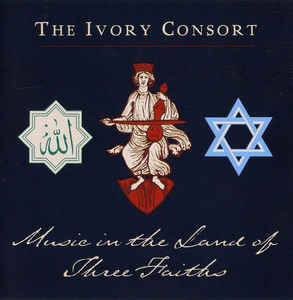(This review was written by Leonora Rose for a previous incarnation of the Green Man Review.)
 In 711 AD, Spain was conquered by the Muslims, who managed to make of it one of the few places in which the three religious sects of Christianity, Islam, and Judaism lived together in tolerance and respect — by medieval standards at least. Some medieval scholars consider “Moorish” Spain one of the Golden Ages of an otherwise intolerant and violent era. This is debatable, but it’s indisputable that they left a particularly rich musical heritage.
In 711 AD, Spain was conquered by the Muslims, who managed to make of it one of the few places in which the three religious sects of Christianity, Islam, and Judaism lived together in tolerance and respect — by medieval standards at least. Some medieval scholars consider “Moorish” Spain one of the Golden Ages of an otherwise intolerant and violent era. This is debatable, but it’s indisputable that they left a particularly rich musical heritage.
This CD gives a good lively sample of the music. It’s very much a music that rewards the listener (rather than, say, the dancer); there’s a sense of the strange throughout, and several pieces reward attention with small details and flourishes, and it rarely feels tedious. Arrangements range from simple near a cappella — in the Christian “Stella Ceptigaras“, my favourite of the slower tracks, and the Islamic “Call to Prayer” — to instrumental structures as complex as is allowed in monody and antiphony.
The musical backing often captures a strong sense of the temporally exotic nature of this music, as well as of the various ethnic touches of the Sephardic Jewish tradition, of Islamic music more reminiscent to modern ears of the Arabian desert than of Spanish folk. I wish I could say more about who plays which instruments to best effect, but too often, my knowledge of which medieval instrument produces which sound is too weak to be sure. That said, I did notice some especially fine work on the plucked stringed instruments (Of which there are at least two different varieties).
The group singing is delightful, as are the male voices working solo; two sound classical and clear (I think Gerard Edery, the featured artist, has the deeper, more splendid one, but that may only be a matter of personal taste). The third male singer, Rex Benincasa, is more nasal, but can also carry the more Arabian sounds — his “Call To Prayer” is at first offputting, but affecting — and it’s been growing on me. However, Margo Gezairlian Grib’s efforts to incorporate her naturally breathy voice into the trills and flourishes occasionally come off as forced and unnatural, most notably in the otherwise stunning “Porque Llorax Blanca Nina“, and “Santa Maria Amar“. That said, she does better on the slow “Polorum Regina,” where breathiness is suited, and the long slides of “Ayyu-has-saqi” are delightful.
Overall, I haven’t heard many albums of early music performed in a style as close to authentic as possible. Even those that claim they are trying to sound authentic are often influenced by later-era classical innovations. But of those few I have heard, this one stands out as one of the best. The songs cross a wide cultural spectrum, and yet show common threads in unlikely places, to the attentive listener.
(Sefarad Records, 2002)
